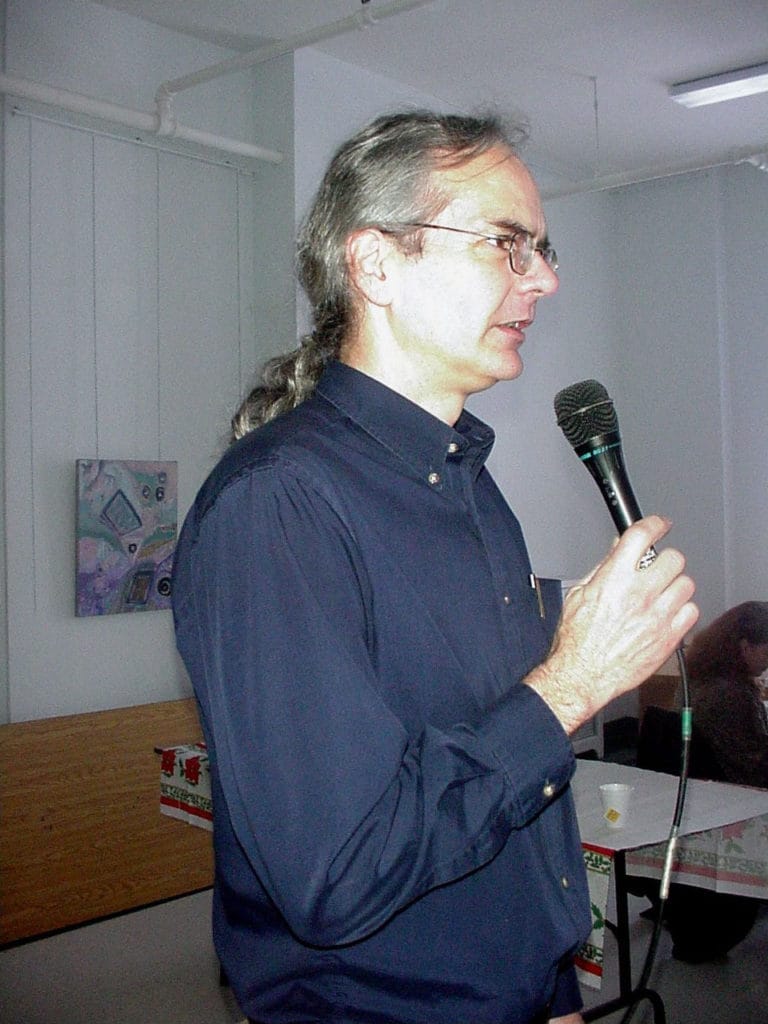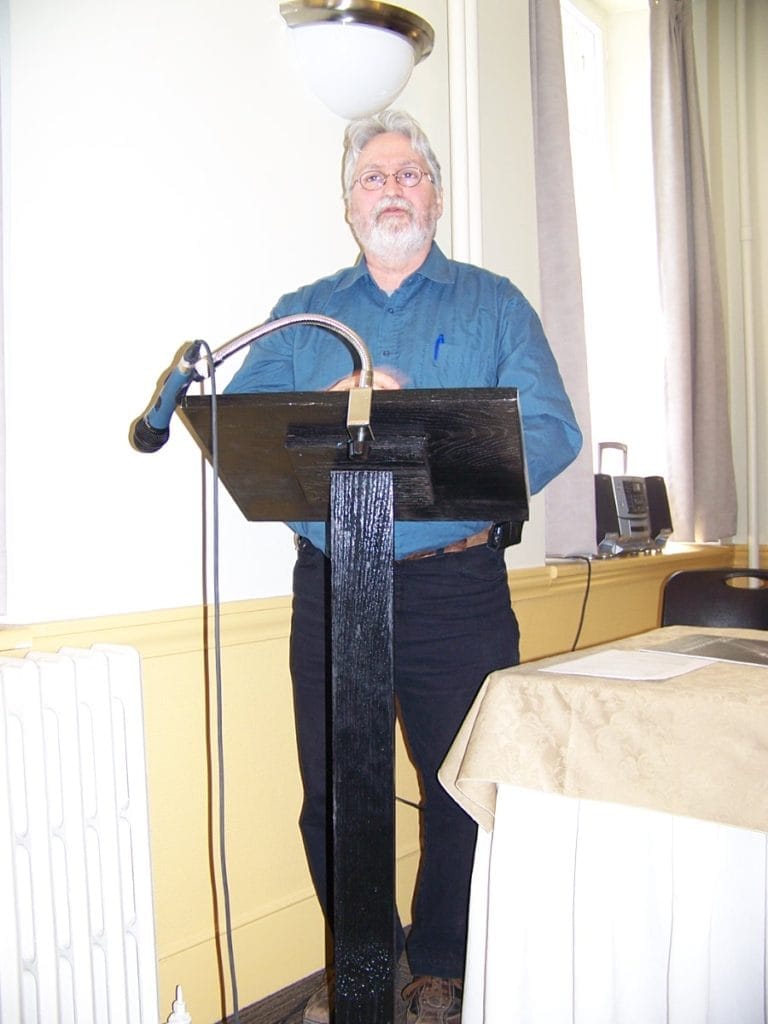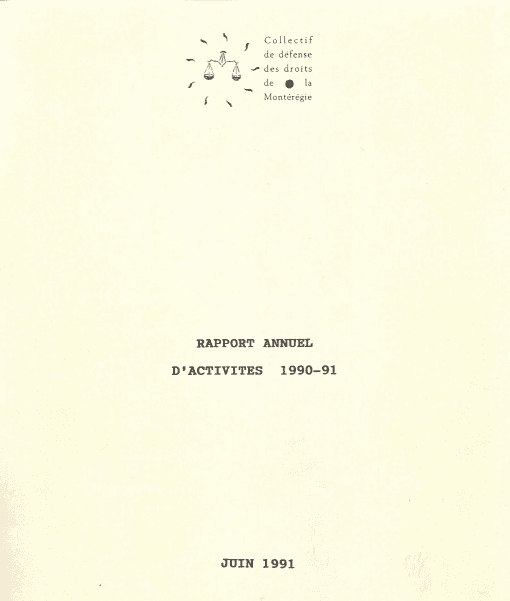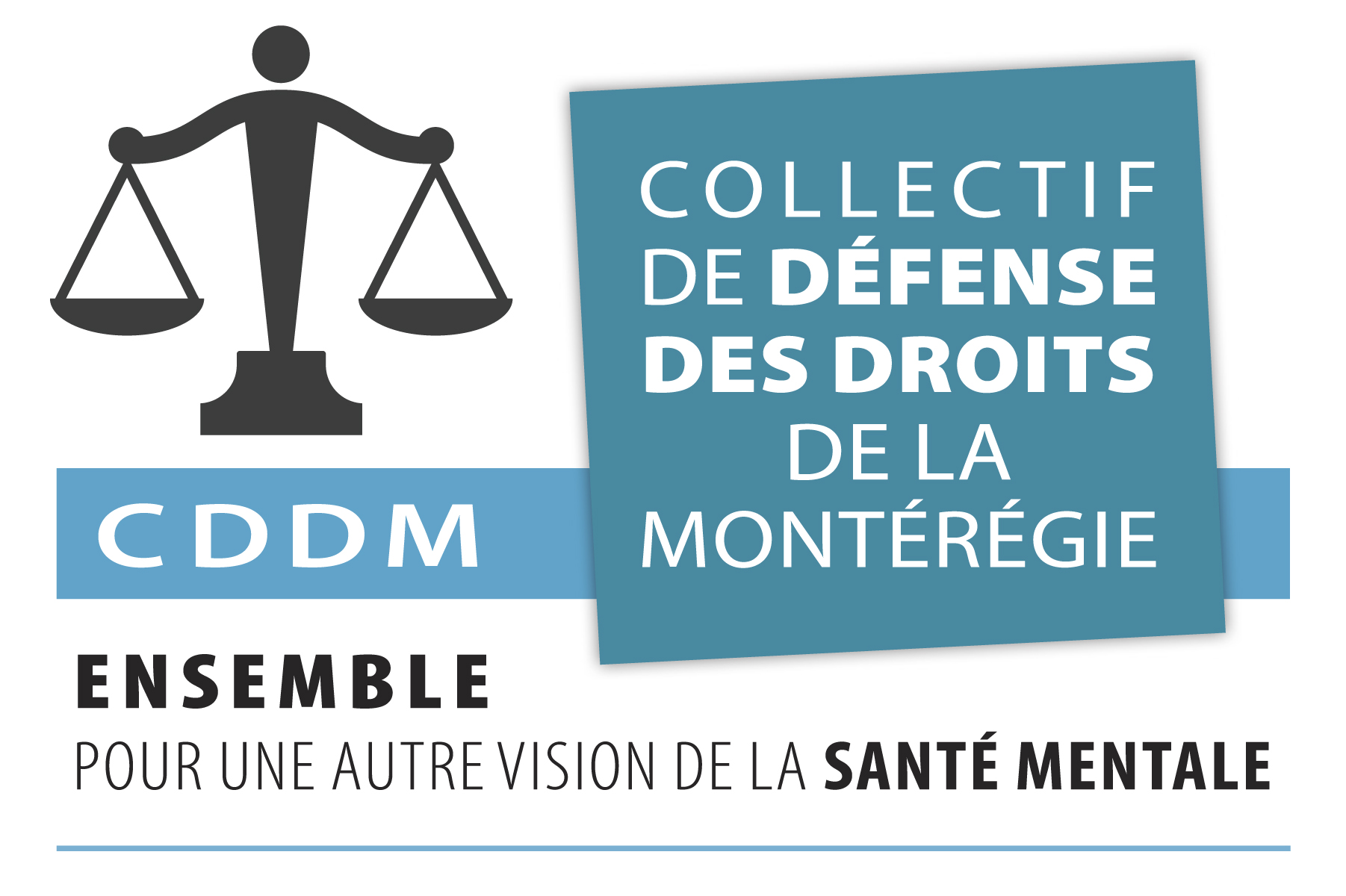The CDDM, more than
30 years of history…

The Collectif de défense des droits de la Montérégie (CDDM) started out in Châteauguay as Auto-psy Montérégie, incorporated in 1989. In the wake of the government policy on mental health issued that same year, the organization was mandated by the Montérégie regional health and social services council to extend its services to the entire region. The policy had remarked on the lamentable state of the promotion and defense of rights for people with mental health problems, noting that they were rarely involved in the decisions concerning them, often poorly informed as to their rights, and sometimes even deprived of the chance to exercise fundamental social roles.
The CDDM began initiating its social action campaigns early on. Its first battle in 1990–1991 set out to gain freedom of movement and communication for those confined in psychiatric facilities. That same year, the organization helped structure Montérégie’s mental health services plan. Much effort also went into improving the Act respecting the protection of persons whose mental state presents a danger to themselves or to others, popularly known as P-38.
To foster patient self-representation, the CDDM developed a nine-hour training program (Être son propre défenseur). In 1995, an interactive theatre piece on the same theme was staged by people who had been “psychiatrized” (subject to involuntary psychiatric treatment, often with lasting damage).

The CDDM then produced a training course (Soutien-conseil entre pairs) to give those who had been involuntarily confined access to peer support in the exercise of their legal rights and recourse.
In 1998, the CDDM launched a regional competition on the topic of confinement and restraint in hospitals. The competition had two categories (visual arts/writing) and was open only to people who had been involuntarily detained in a psychiatric facility.
If chronic underfunding has tragic repercussions on the quality of life of the victims of involuntarily confinement, the region where the CDDM is based has long been Québec’s most poorly funded in this sense. This reality prompted the CDDM to set up a coalition for the right to access mental health services in Montérégie. Furthermore, since living at home and being able to access quality housing are key to any social integration scheme worthy of the name, the CDDM also created a program, Être chez soi, along with consultation committee in Longueuil regarding housing for former psychiatric patients.

Twenty years of collective struggle to defend mental health rights
To commemorate our 20th anniversary, we followed our annual general assembly of June 19 2009 with an afternoon of educational, official and festive activities.
The theatre troupe Mise au jeu also staged a production that touched on the CDDM’s history and the ongoing stigmatization faced by people with mental health issues.
In 2010, the CDDM was selected to lead a project promoting user participation in the decision-making and planning processes for mental health services. Initial financial support of $25,000 was provided by Montérégie’s Agence de la santé et services sociaux (ASSS). Application of the framework (the Cadre de partenariat en Montérégie, today ReprésentACTION) officially began with the hiring of a project manager in November 2010. This position, which continues to this day, entails putting mental health service users in contact with the various health care and community consultative bodies; it also targets the support provided to mental health advocates to facilitate their involvement.
To mark its 25th anniversary in 2014, the CDDM updated its brand image with a new logo and redesigned leaflet.

In a remarkable development, on May 15, 2015 the Superior Court ruled in favour of the plaintiffs in a historic class action suit filed by the CDDM and victims group representative Lise Brouard. As a result, the Hôpital du Suroît was compelled to pay $600,000 to several hundred victims for the abusive application of confinement and physical restraints, particularly the Argentino straitjacket.
In May 2016, the CDDM petitioned the Québec National Assembly to have May 15 declared Journée nationale “Non aux mesures de contrôle; isolement, contention physique et substances chimiques” (confinement and physical or chemical restraints).
Since then, each year the CDDM has organized activities to raise awareness of the misuse of control interventions. These activities culminate on May 15 with a public rally to mark the National Day. Other mental health advocacy groups also hold activities and rallies in each provincial health region to denounce abusive practices and showcase alternative approaches.
In 2016, the Fonds Accès Justice granted the CDDM a $50,000 subsidy to launch a pilot project. Its main objective was to ensure that people under confinement request could and would have help accessing justice. Entitled “Pour une défense pleine et entière”, the project led to a historic agreement with the CISSS de la Montérégie-Est to establish lasting practices through which mental health services users are better informed of their rights, and thus better able to defend themselves. The program is ongoing.
After a long and eventful involvement in Montérégie, in 2018 the CDDM’s Granby office, which had opened in the early 1990s, closed due to the municipality’s transfer to the Estrie administrative region.


